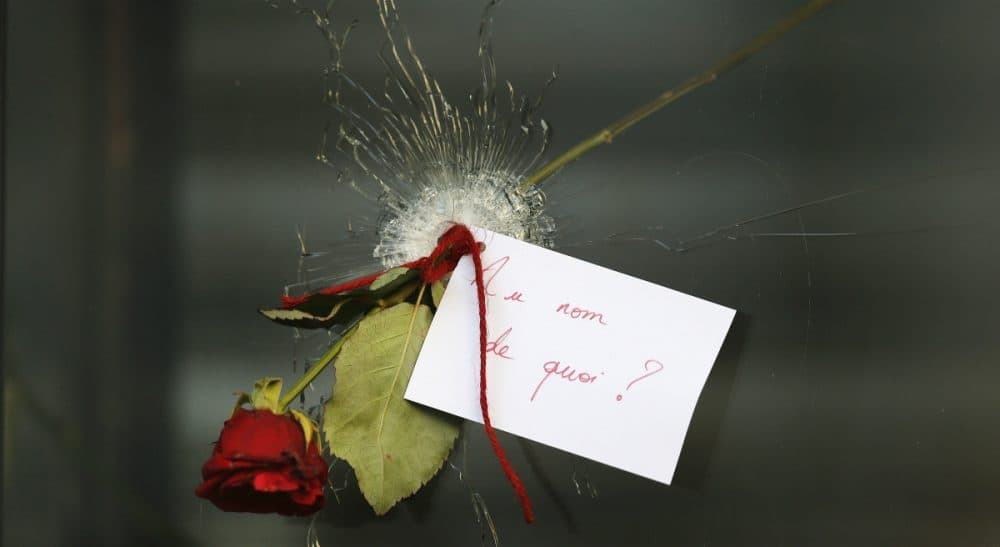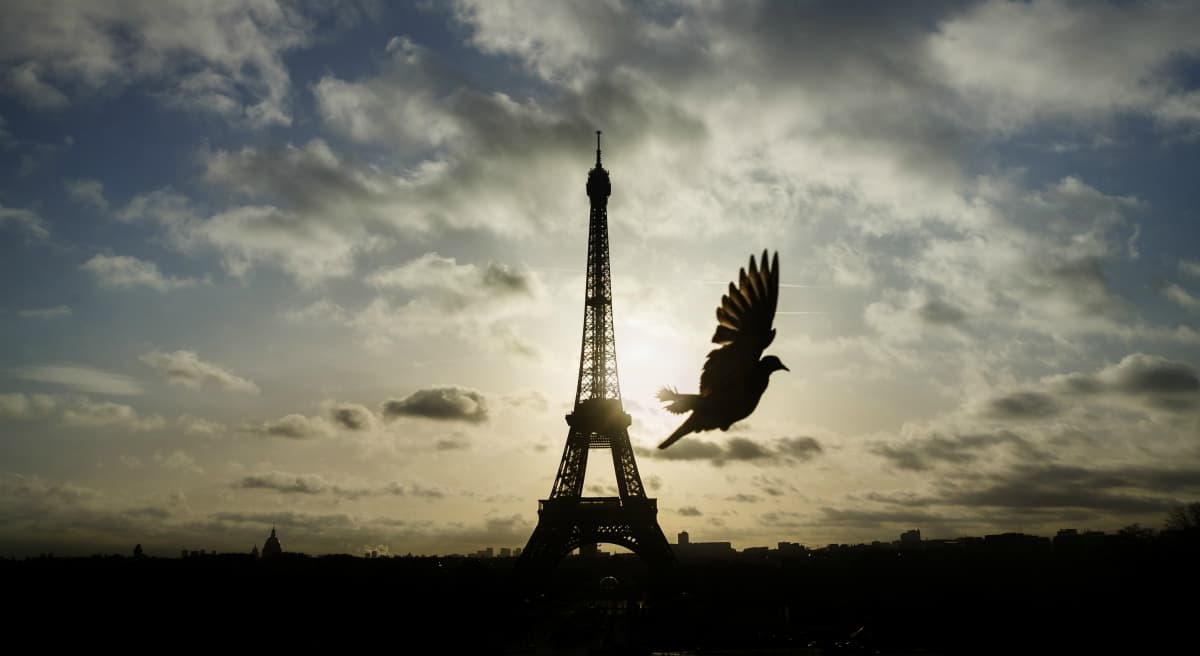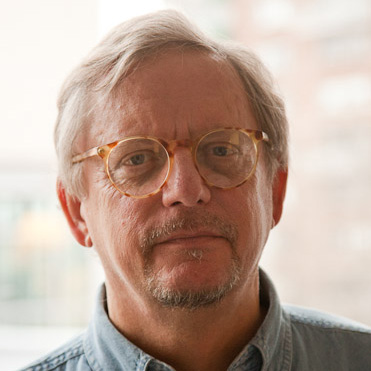Advertisement
Why Paris?

The attacks in Paris on Friday can be grasped in a number of ways — none of them fully satisfying — while they usher in another round of recrimination. The shock, anger and sadness that so many of us feel is itself a point of contention: Why do attacks in Paris move us so much when similar mass killings erupt in Ankara, Beirut, Mumbai and elsewhere seem not to? And why is Paris — or any city in the West — a target at all?
Understanding this kind of terrorism -- carried out by “jihadis” linked to ISIS — is not a simple matter. The roots of political violence have been studied intensively for at least three decades, yet there is no general theory that explains every case. Deprivation, humiliation, masculinity, colonialism, war, religious radicalism, nationalism, cultural clashes — these notions, among others, are routinely (and instantly) proffered, but no one of them is adequate to account for such atrocity.
What seems to apply in this case (though at this writing we know little of the individual attackers) is that such violence combines different elements of causation. At the most basic level, the attackers themselves are often regarded as victims, or simply as monsters. These are not mutually exclusive ideas. The young men are frequently found to be from immigrant families, socially and economically marginalized and easy prey for recruiters to jihad. Their alienation and usually sudden fealty to radical Islamist ideologies do lead them to monstrosity. But they are typically the instruments of broader historical forces.
Murdering wantonly in Paris is not merely a tactic, but a rebuke to much of human achievement.
The locus of blame for most Americans is political Islam itself, even as scholars of religion hasten to say that Islam is not inherently violent. While some take issue with that acquittal, it’s clear that the terrorism spurred by groups like al-Qaida and ISIS inhabits a pathological fringe of Islam. Christianity has had its jihads, too, and more consequentially.
But a sizable number of Muslims subscribe to violent jihadism, and this begs for an explanation. This ideology grew from a rejection of Western, including French, imperialism (as did Nazism). The failure — ineptness and corruption — of Arab politics, and similar dysfunction in other Muslim societies, is an even more powerful context. And here is where larger political forces combined lethally to bring us to the terror gripping the Middle East and Europe.

Radical Islamists especially reject their own regimes that are, in their view, vassals of the United States, Britain, France or Russia. They also rebel against dictatorship, the kind that repressed and marginalized Muslim activism, as was the case in Saddam’s Iraq, Mubarak’s Egypt and the Shah’s Iran, among others. Assad’s Syria is another poignant example.
This tension has long persisted in the Middle East, aggravated by the Israeli occupation of Palestine and the politics of oil. Then the wars began: the Soviet Union in Afghanistan and the U.S. support of mujahideen there; the United States in Iraq, Afghanistan and Iraq again, with crippling sanctions as well, among others. The wars were enormously destructive, taking hundreds of thousands of innocent Muslim lives, and creating an ongoing jihad in the region, in Russia (remember Chechnya), Bosnia, Algeria (formerly French), Pakistan, and now Libya, Yemen, Mali and other places.
The U.S. wars in Iraq are the proximate cause of the vast turmoil in the region nowadays. ISIS is comprised mainly of Iraqis, many of them former officers in Saddam’s army (and prisoners in U.S. detention). The country was so weakened by sanctions and war that septic ideologies could thrive. Assad’s predations against Syrian civilians added fuel to the fire. The Gulf monarchies intensify the Syrian conflict with money and their own religious fundamentalism. This relentless catastrophe has many authors.
Advertisement
France is also highly symbolic. For hundreds of years, the French have struggled to nurture and uphold human rights and foster democratic values.
But why Paris? That jihad has now twice struck there this year is not a mystery. The French are involved in many of the region’s conflicts, and cultural tensions in France abound. One poll last year found 16 percent of French citizens sympathizing with ISIS. It also may be that France has simply been unlucky, as numerous ISIS plots in Europe have been thwarted.
Our own sadness at seeing Paris ravaged by jihadists is warranted. We are more like the French than Lebanese or Iraqis, and empathy follows this suit. The unsurpassed beauty and culture of the city amplify this reaction. But France is also highly symbolic. For hundreds of years, the French have struggled to nurture and uphold human rights and foster democratic values; it was the epicenter of the Enlightenment that fairly defines Western civilization. And the jihadis, in their reckless, apocalyptic pathology, detest above all such values. Murdering wantonly in Paris is not merely a tactic (to draw us in again to deadly military response), but a rebuke to much of human achievement. Such destructiveness must be resisted, but the how of that remains maddeningly unclear.
